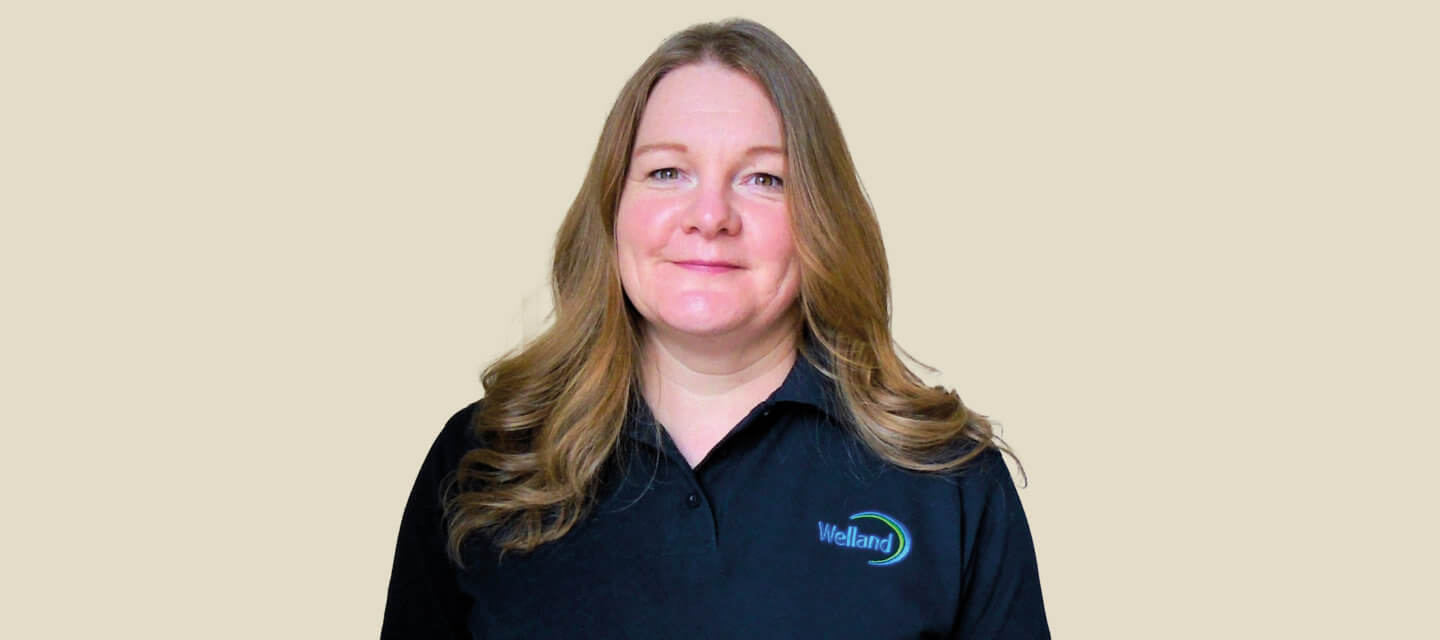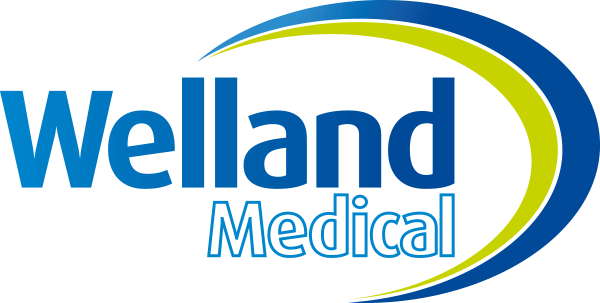
Meet our Head of Engineering
Sarah Duckworth joined Welland as Head of Engineering in the second half of 2020 and she has become an essential part of the team. In this blog Sarah discusses her day-to-day role and how she got to this place in her career.
What does your day-to-day job as Head of Engineering cover?
“I lead the team responsible for the design, development and ongoing maintenance for the production lines at Welland Medical. If Welland is manufacturing a new product we’re the team that designs the manufacturing process.”
“Besides the day-to-day maintenance of the manufacturing lines, we’re also responsible for upgrades and for identifying opportunities for improvements by introducing new capabilities or technologies.”
What relevant qualifications do you have?
“I have a Bachelor of Engineering in Mechanical Engineering and a Chartered Institute of Marketing Diploma in Marketing. The marketing and engineering don’t seem to sit side-by-side, but I think part of my success has come from my understanding of a business as a whole.”
“I did the Diploma in Marketing when I was considering a change and looking for a challenge. I was – and still am – very interested in what we deliver to market and who that market is. Understanding the patients and their needs and linking that to our processes, is important. Otherwise you can disconnect from the importance of what you do.”
“Often in the engineering world everything is black or white, so it helps if you can understand why priorities may need to change or why other parts of the business can’t answer a question you may have. It’s helpful when you can understand what’s influencing other aspects of the business.”
“Although these qualifications gave me a base on which to build my understanding, practical experience and exposure to many different manufacturing techniques has really helped solidify my knowledge. In addition, throughout my career I’ve been faced with a lot of challenges and applying a practical approach to problem.”
What initially drew you to the medical device industry?
“I entered the medical device industry over 15 years ago looking for my next challenge in engineering and project management. Going into that role I wasn’t aware of additional requirements for the industry, I was just looking at using my skill set.”
“I soon discovered that it’s quite a bespoke field and incredibly rewarding. What you’re doing is going to enhance or prolong someone’s life (depending on the product). Equally the products could have a very negative impact if they fail. For those reasons there are a lot of regulatory requirements around what we do.”
“My previous experience related to the production of airway devices, such as tracheal tubes and devices related to vascular access and infusion therapies to deliver drugs.”
Are there any skills or knowledge particular to the medical device industry that you need to do your job?
“Knowledge of regulations and the reasons they’re in place are critical to the role. I realised that I needed to embrace these, because they are what make it possible for me to know I’m delivering a good quality product. They exist so that we can deliver the best possible product.”
What are the challenges and rewards of working in medical device manufacturing?
“The challenge of engineering is always working against the clock. The demand for availability of the production equipment is constant and any downtime directly impacts production performance. Therefore, we must make sure we keep our machines constantly up and running.”
“Being able to resolve issues or design and implement new processes that have a significant positive impact on the process and the business is very rewarding, as knowing that the product we’ve worked hard to get out the door directly impacts and improves someone’s life.”
Do you have a particular approach to your work?
“I try to remain positive and look for what can be done. Life would be far easier if we didn’t try and didn’t push ourselves, but it would be far less rewarding. Almost everything can be turned to a positive and I try to encourage and motivate others to engage in the same belief. For as long as I can remember this has been my approach.”
“I was once challenged to investigate an issue with a medical device that appeared to randomly return an error message and stop working. The expectation was not that I identify the issue, but that I demonstrate that a structured investigation had taken place. I was told by all the experts that this was an anomaly and they had already looked into all the possible causes, including electrical interference. Undeterred I started with how the device was used, actually simulating it rather than just theoretical. The device was attached to a wheelchair and moved around the hospital environment. Within 10 minutes I was able to reproduce the error on demand: the device was not sufficiently robust to withstand vibration or sudden movement such as crossing the threshold of a lift or moving across tarmac. It was really satisfying to be able to provide a clear answer as to what was happening and why.”
What do you feel are your most valuable personal traits and skills in your role?
“Listening, positive attitude, logical problem solving, structured planning”
What advice would you give someone interested in working in your role?
“A degree in engineering is good to have but the most important thing is experience. It is important to have experience of the technical application of your skills. Then you need to gain experience of project management and leading a team.”
“I think the role is suited to a logical thinker who uses the information around them to make responsible decisions and who is comfortable in being held accountable for the results. Commercial acumen, a continuous improvement mindset and logical problem-solving skills will serve you well. You also need to be passionate about achieving great results as a team and identify the skills and strengths of the people in your team and elevate these.”

